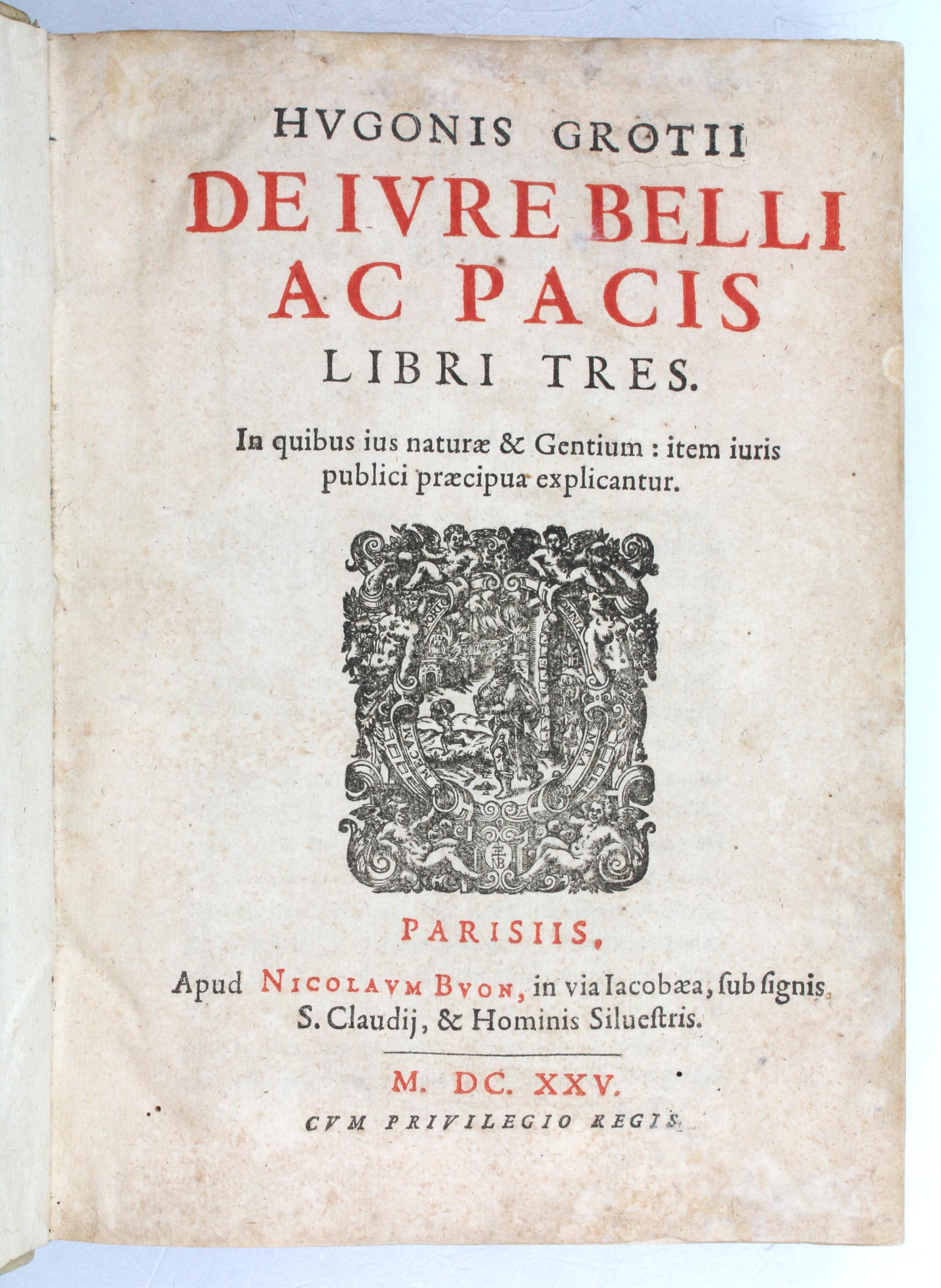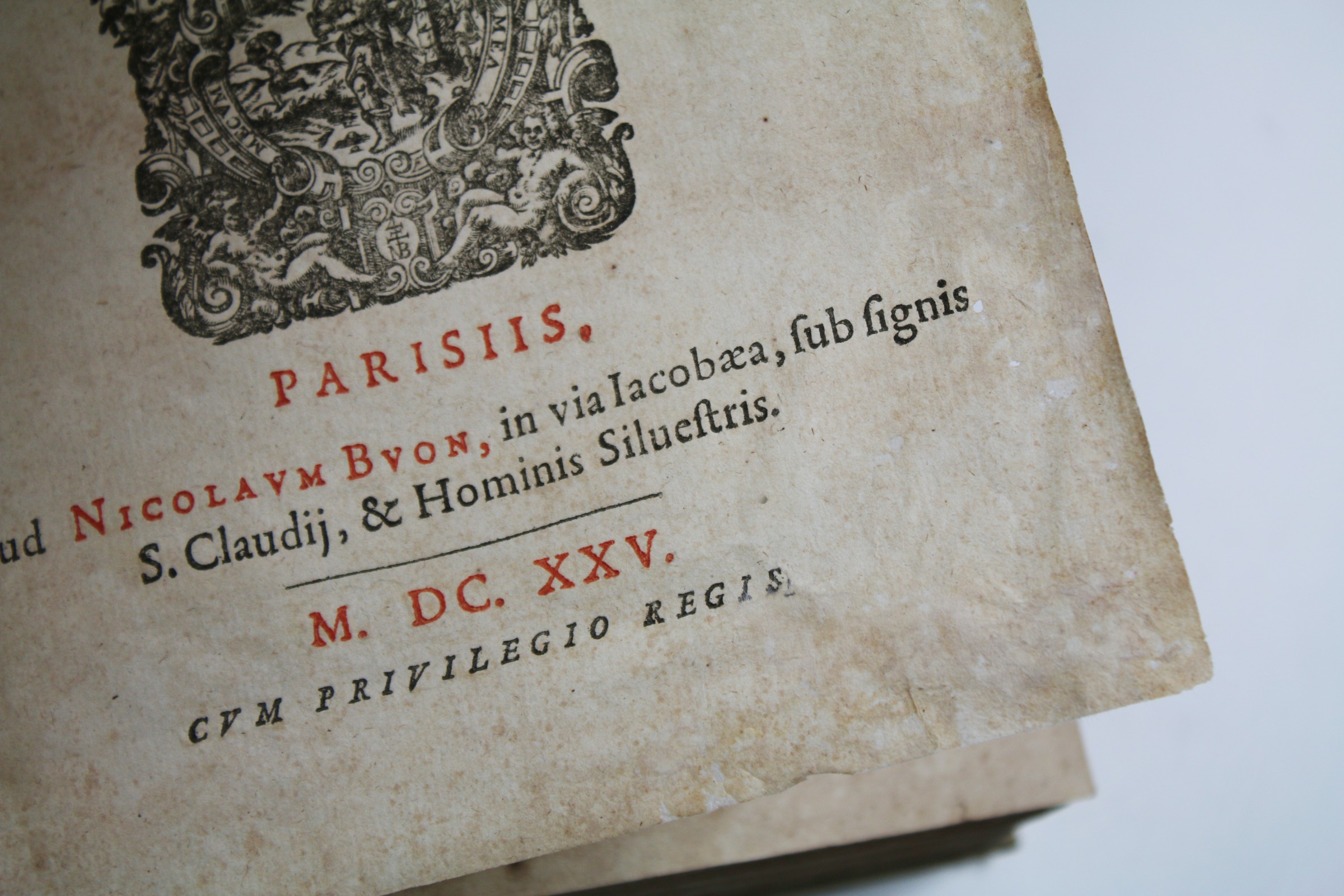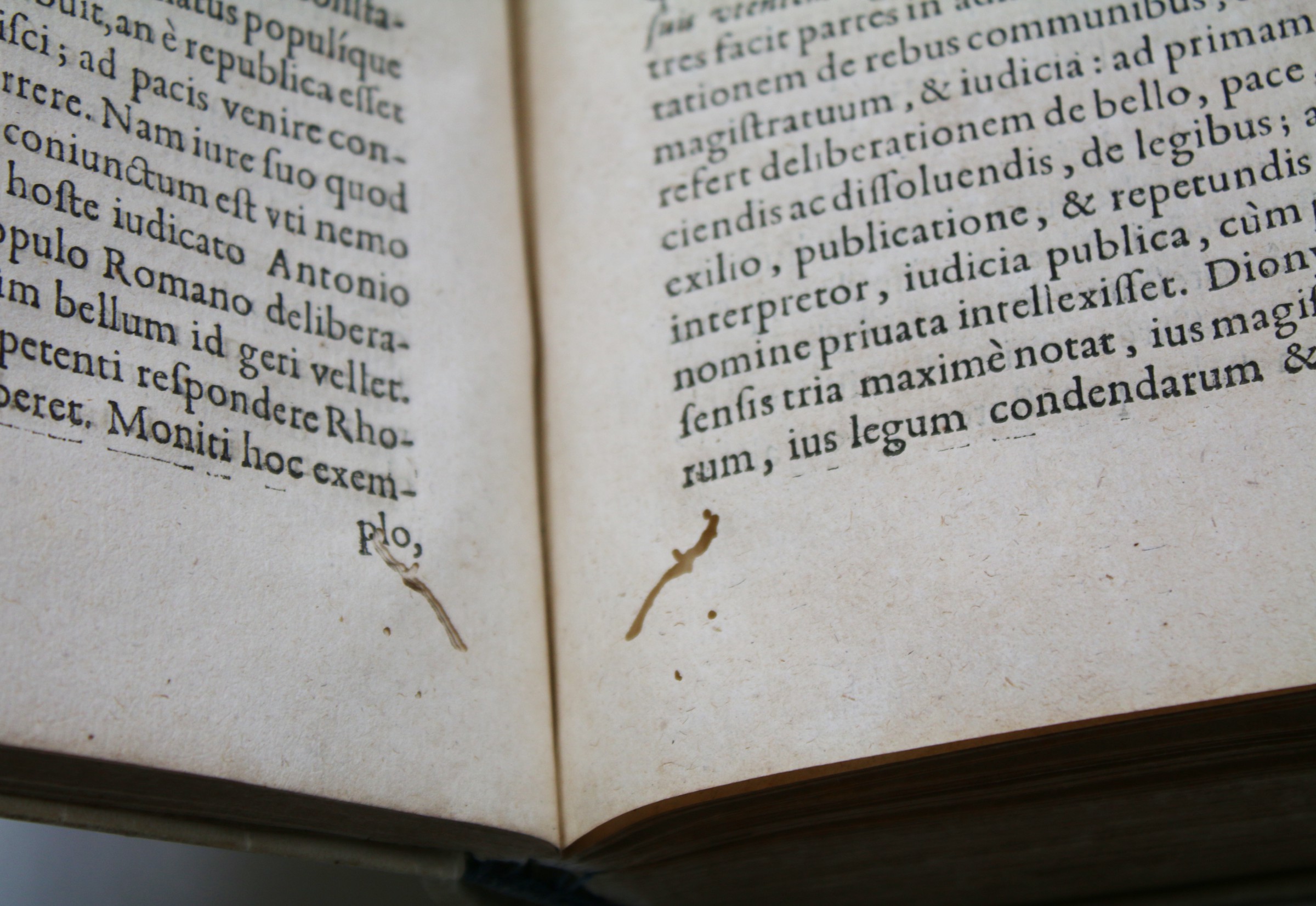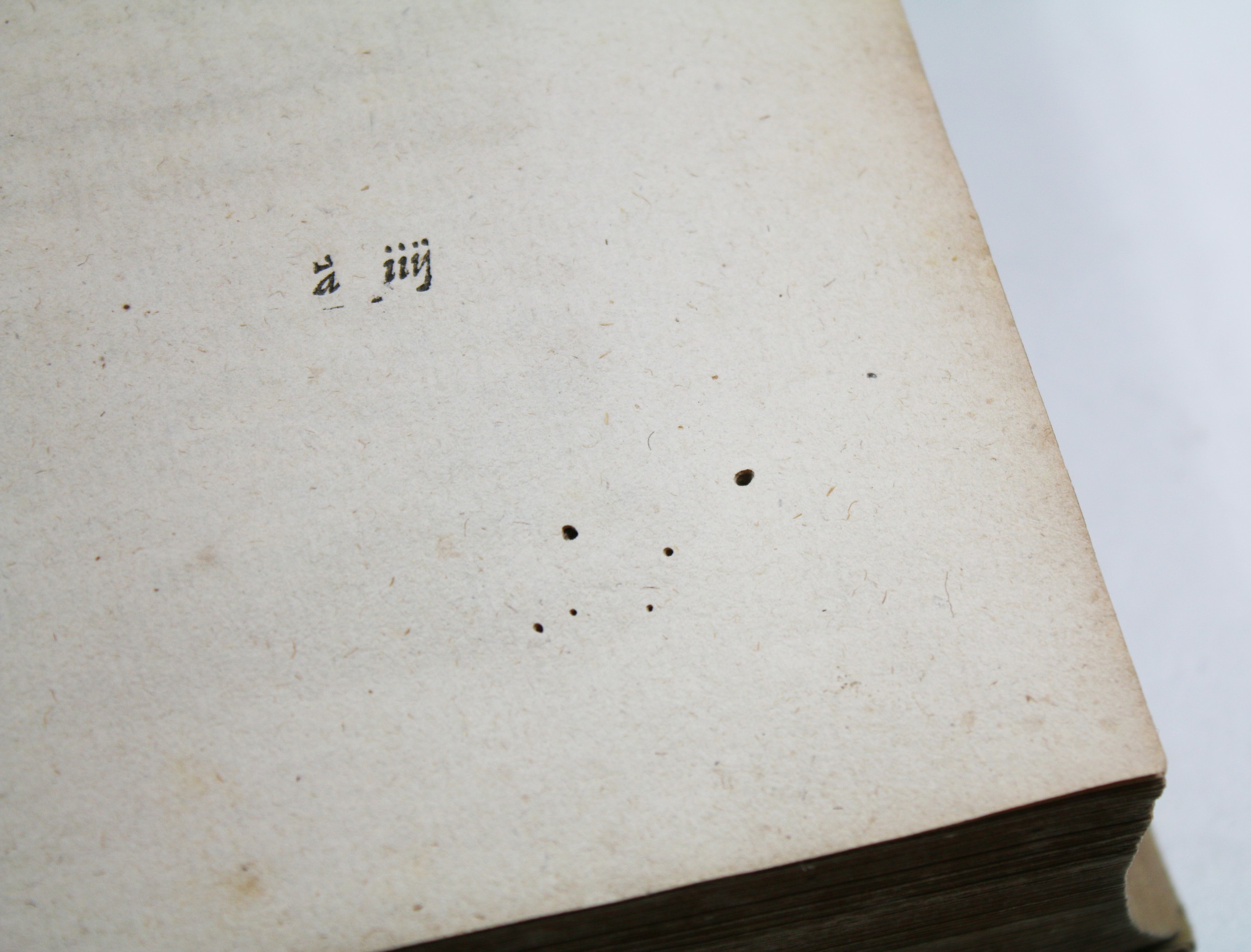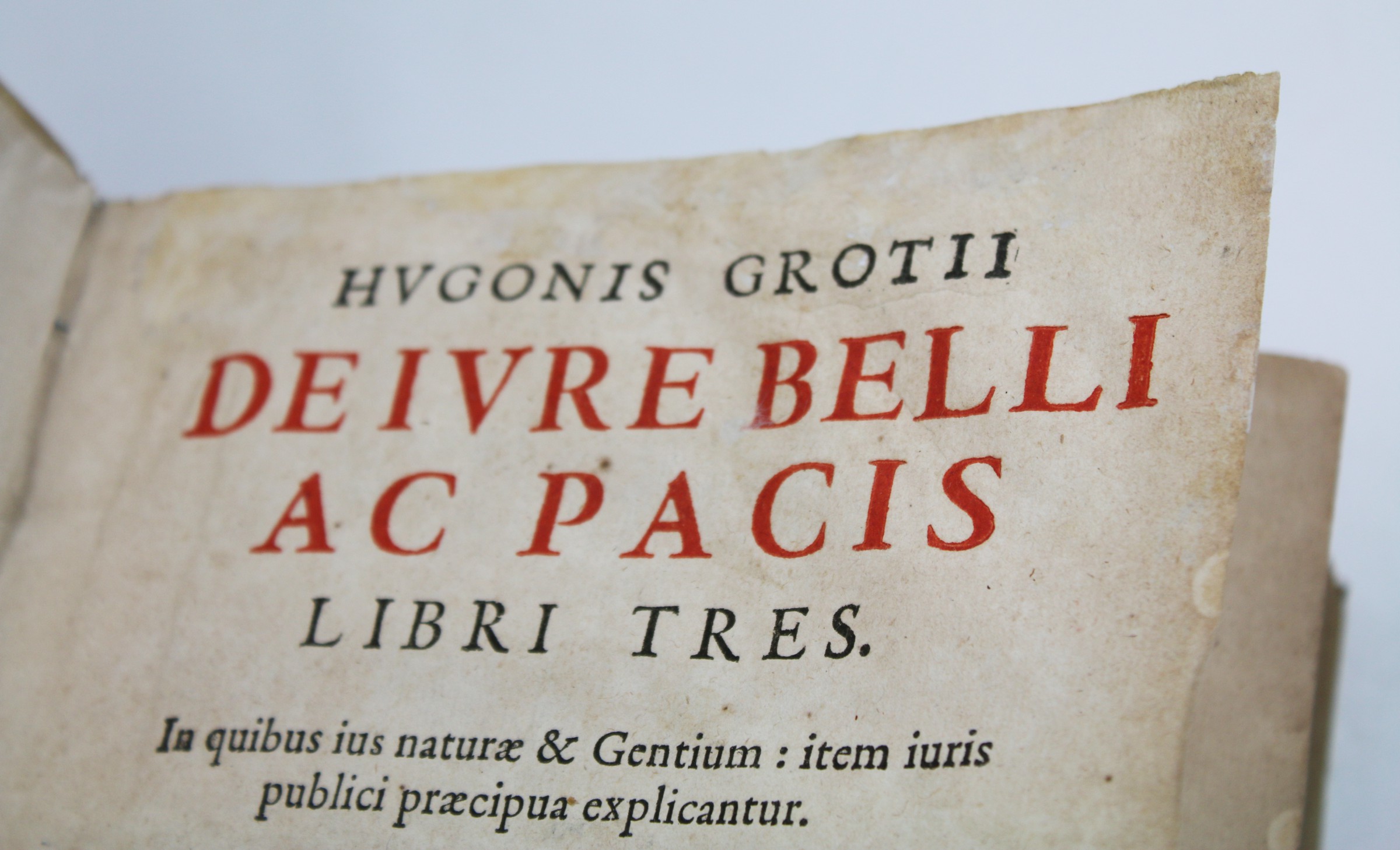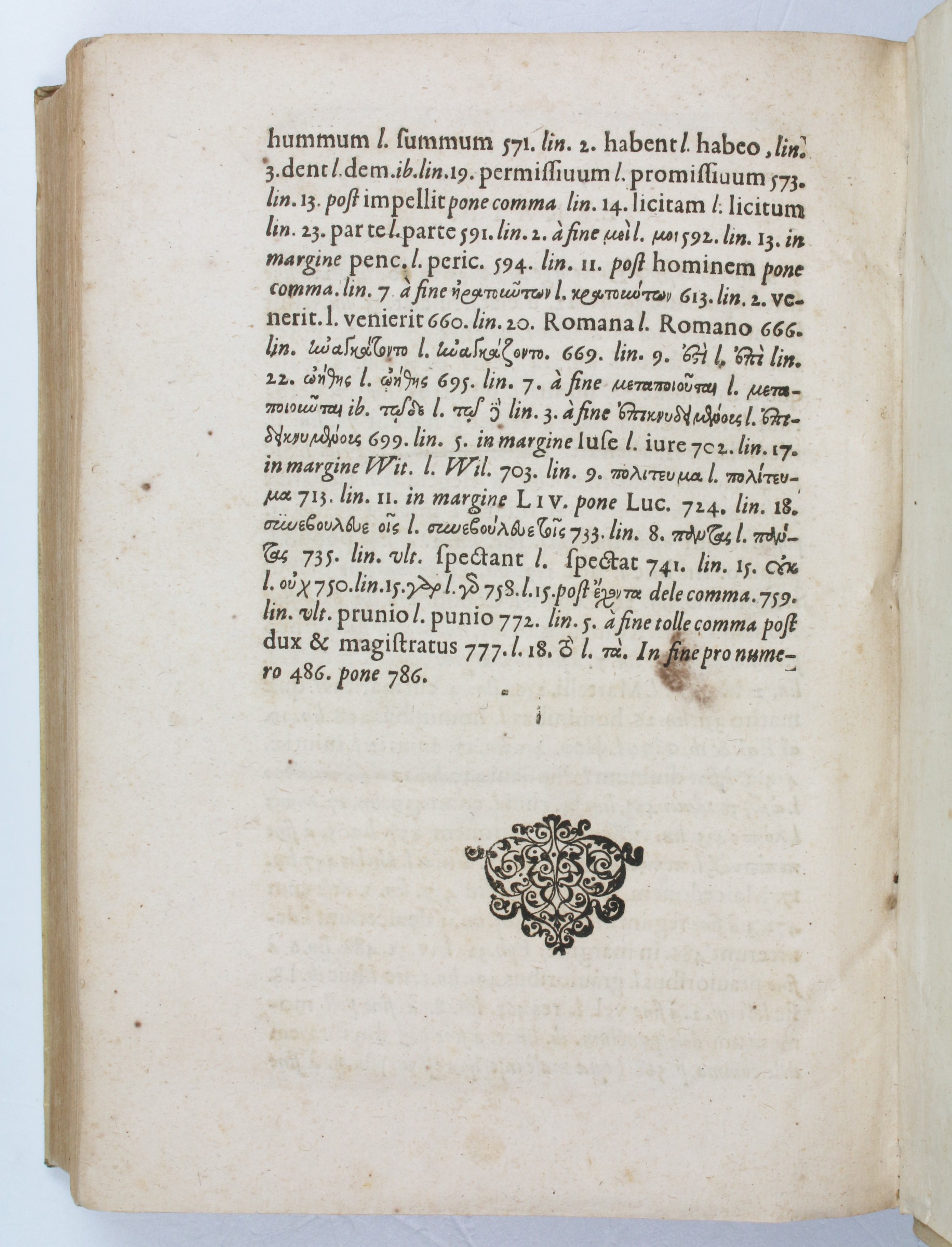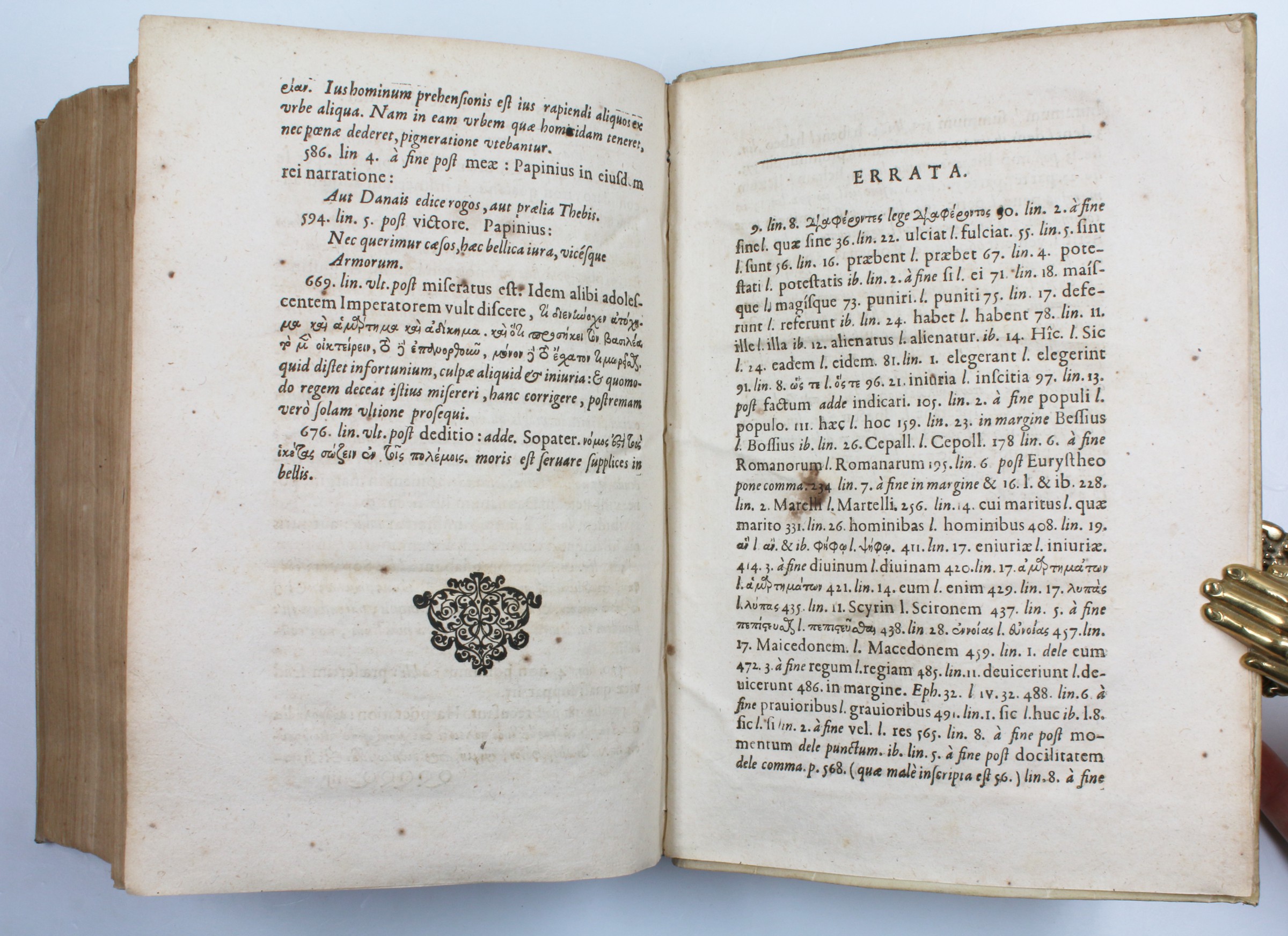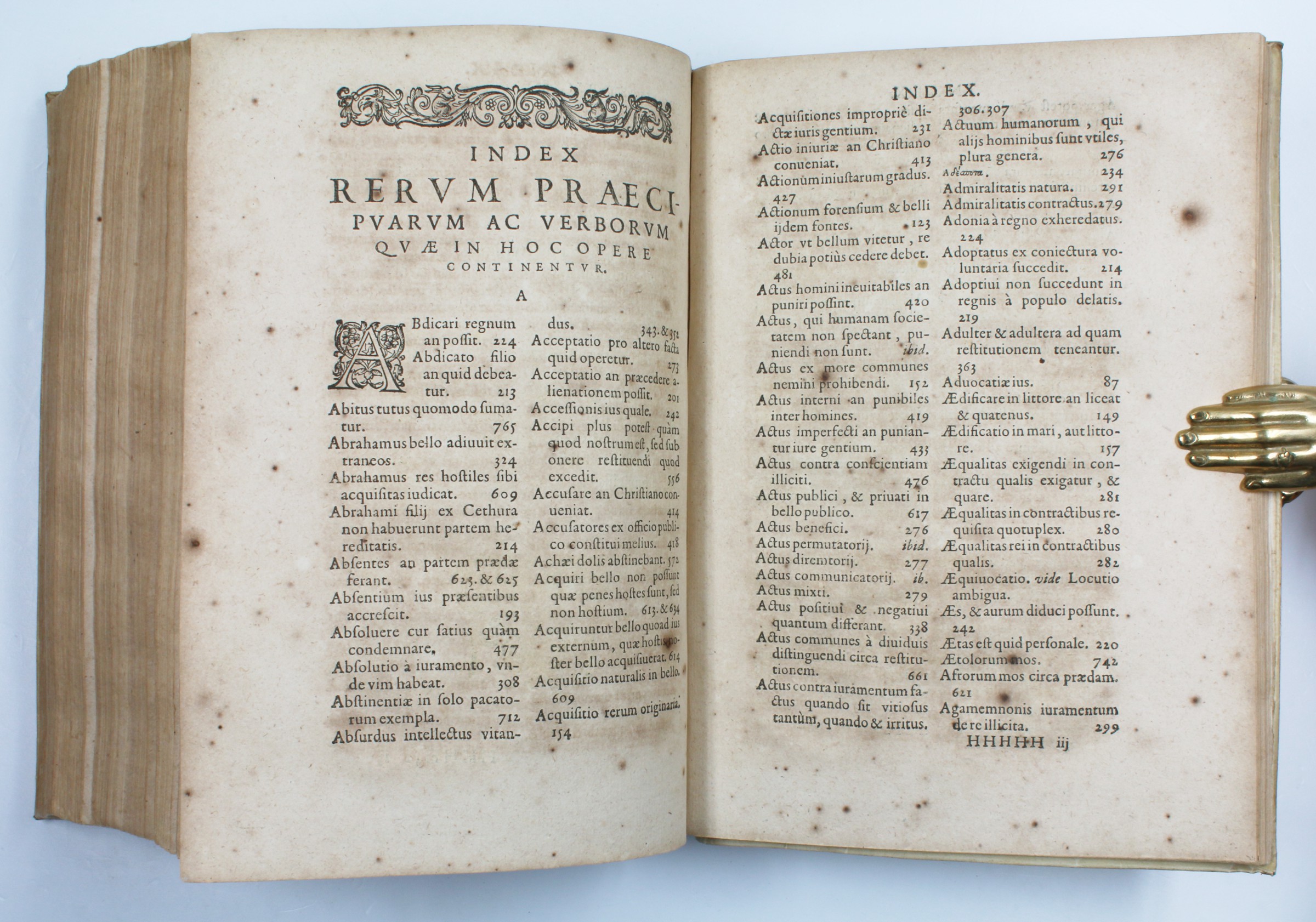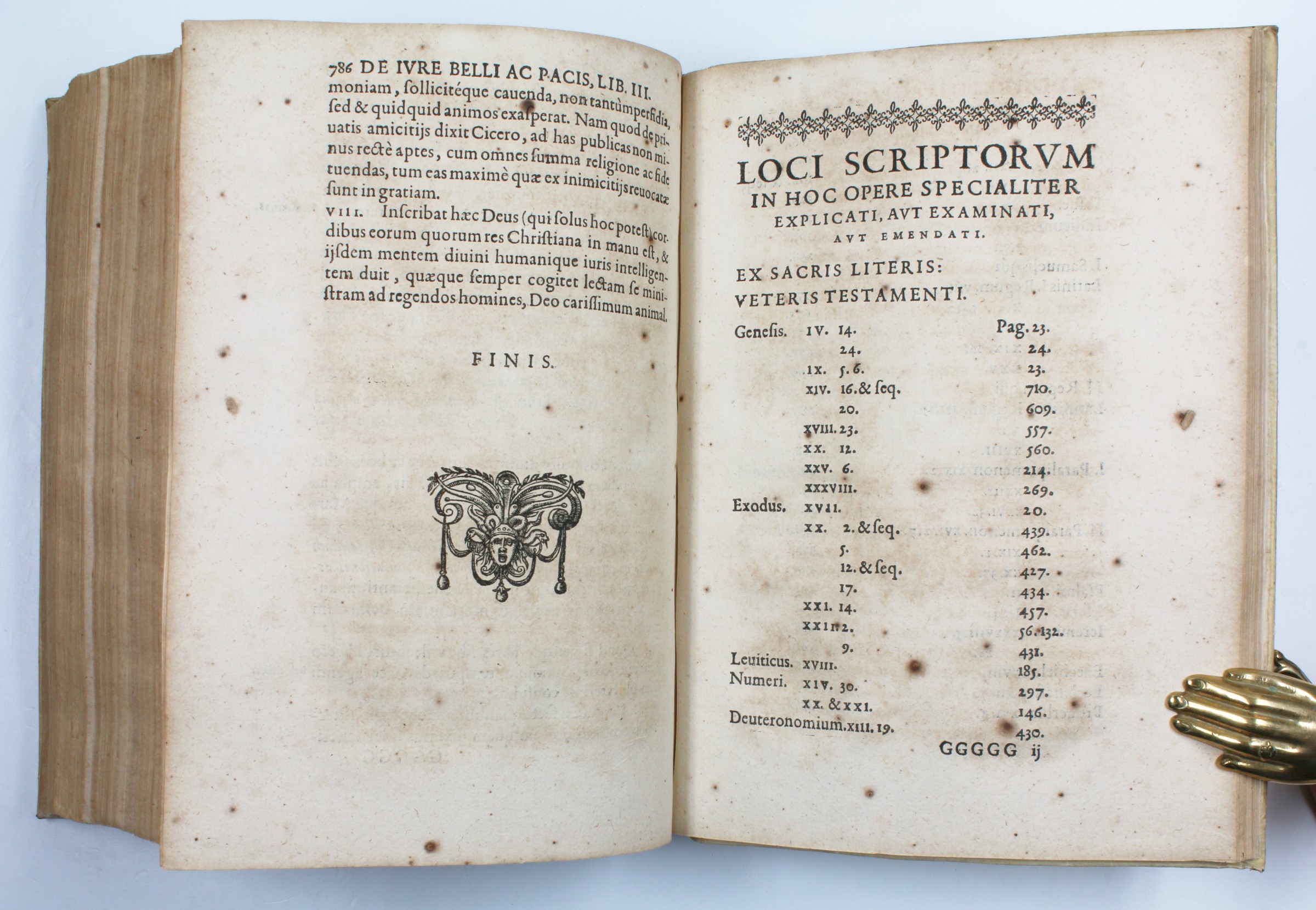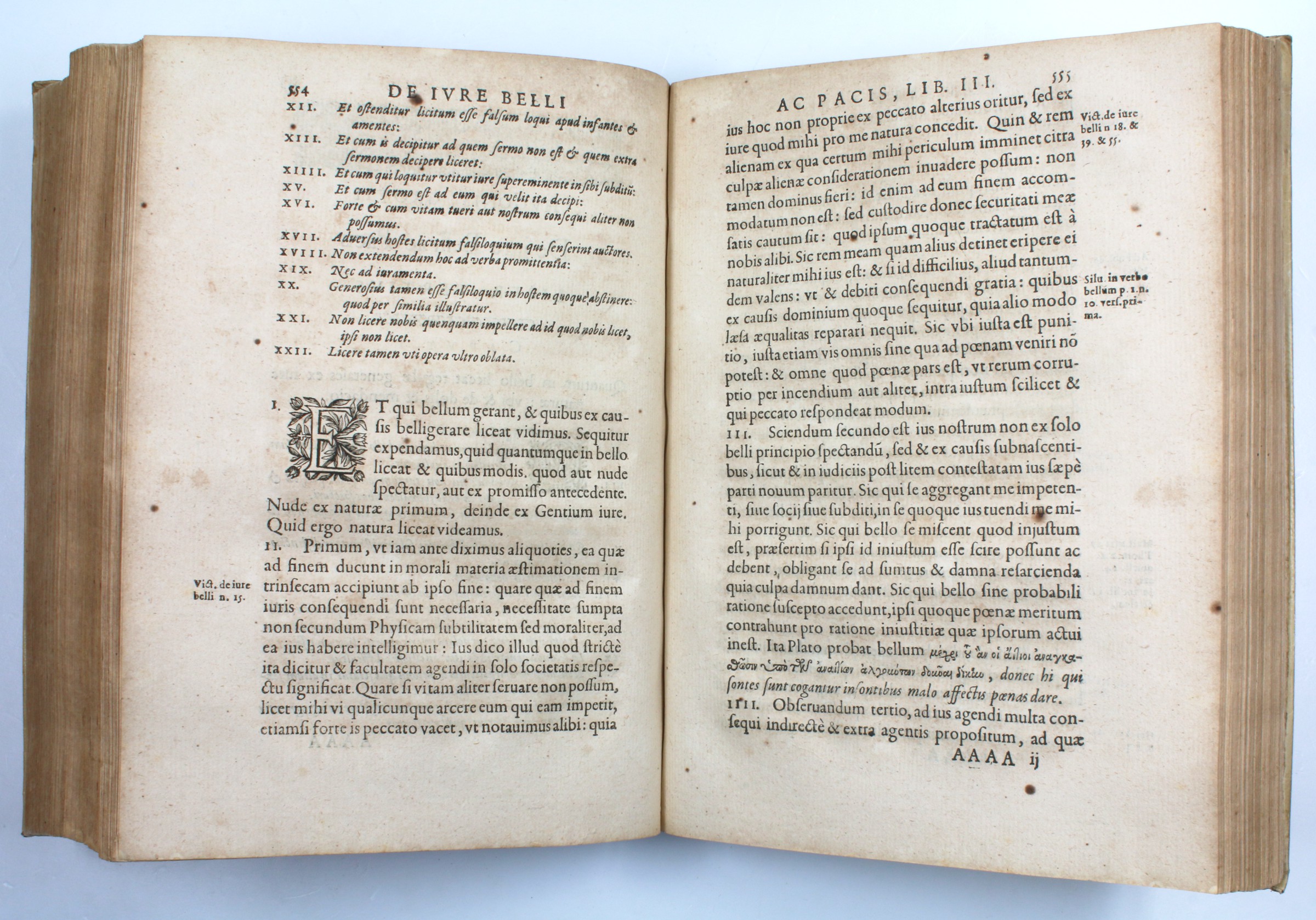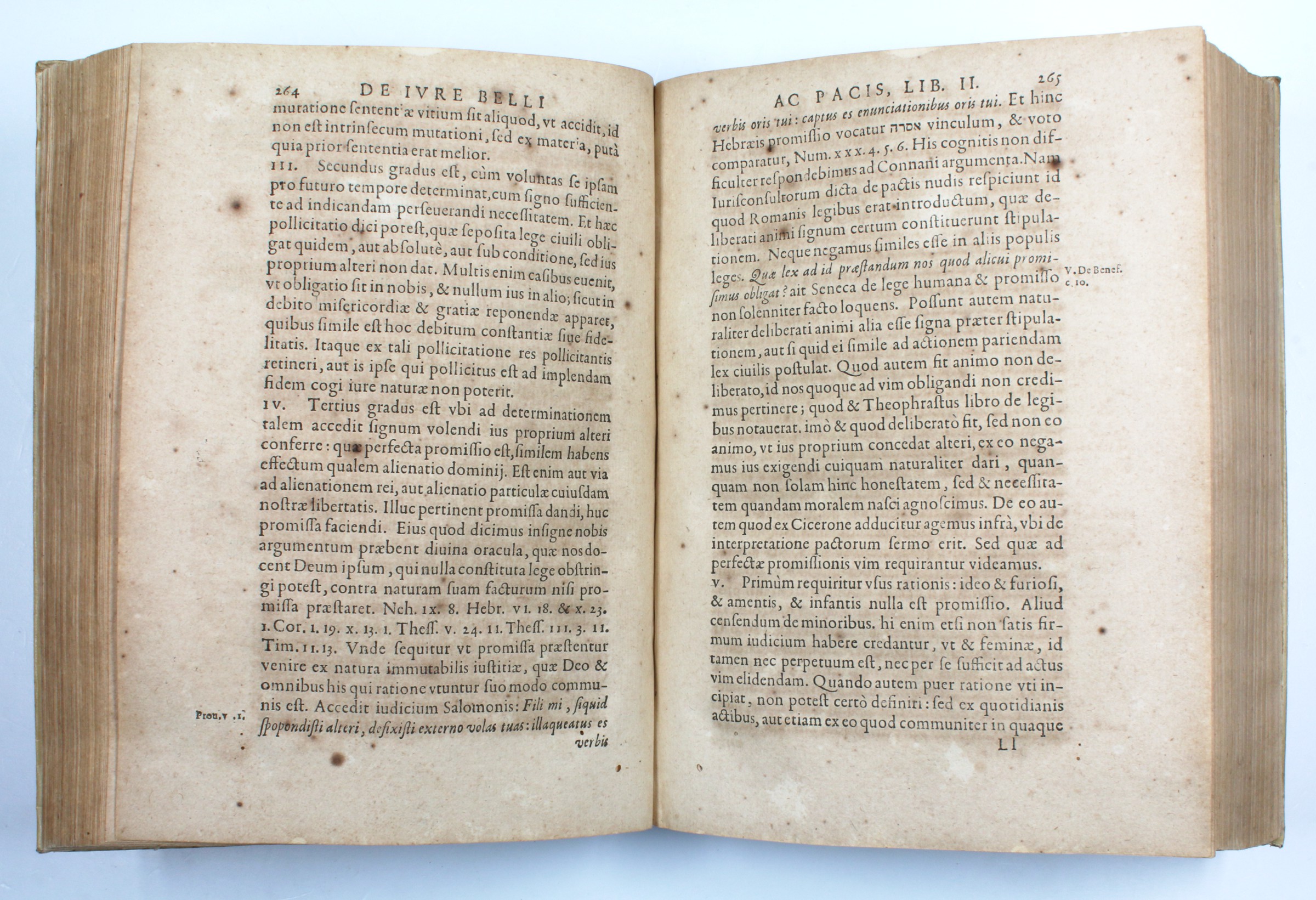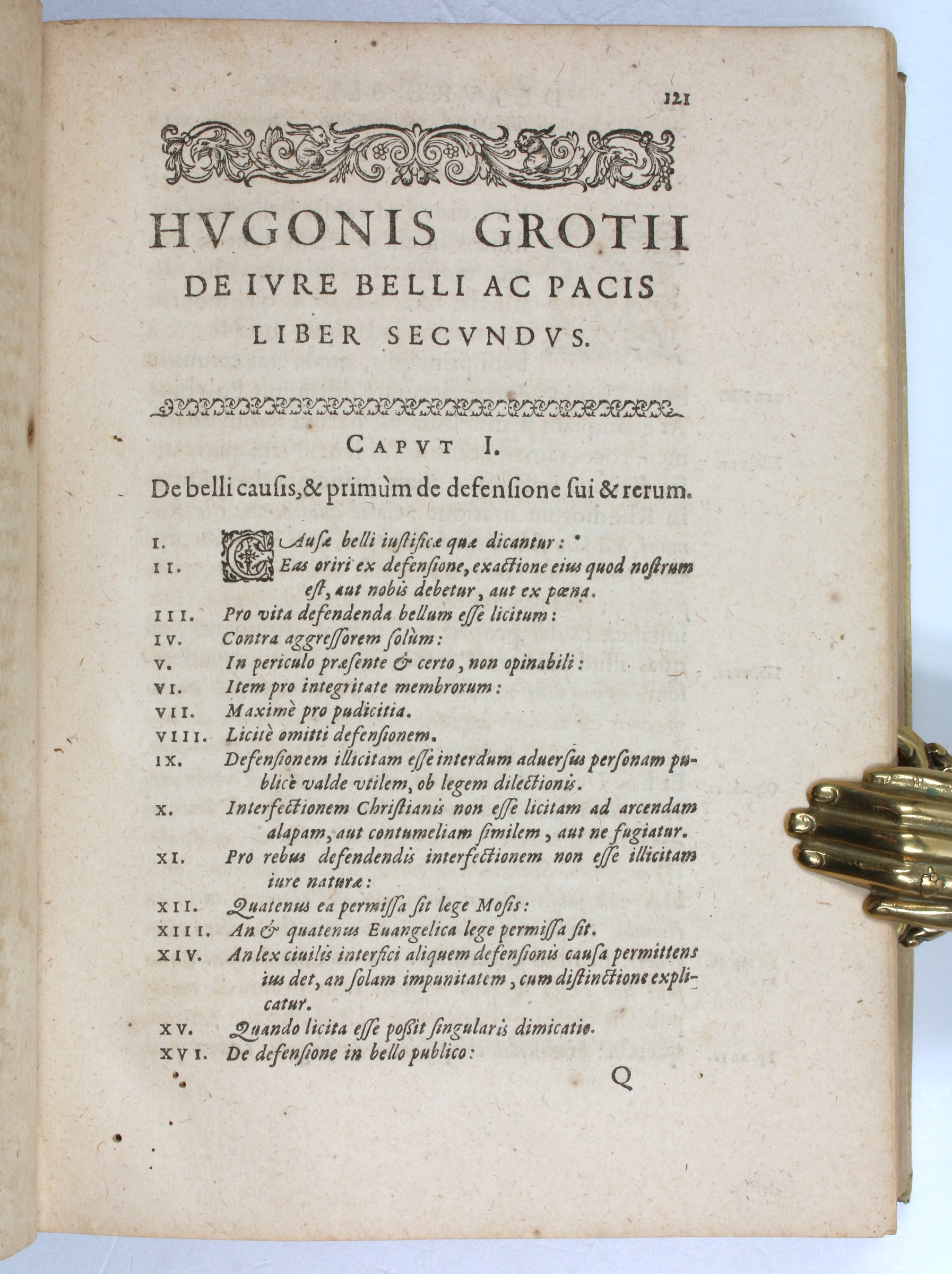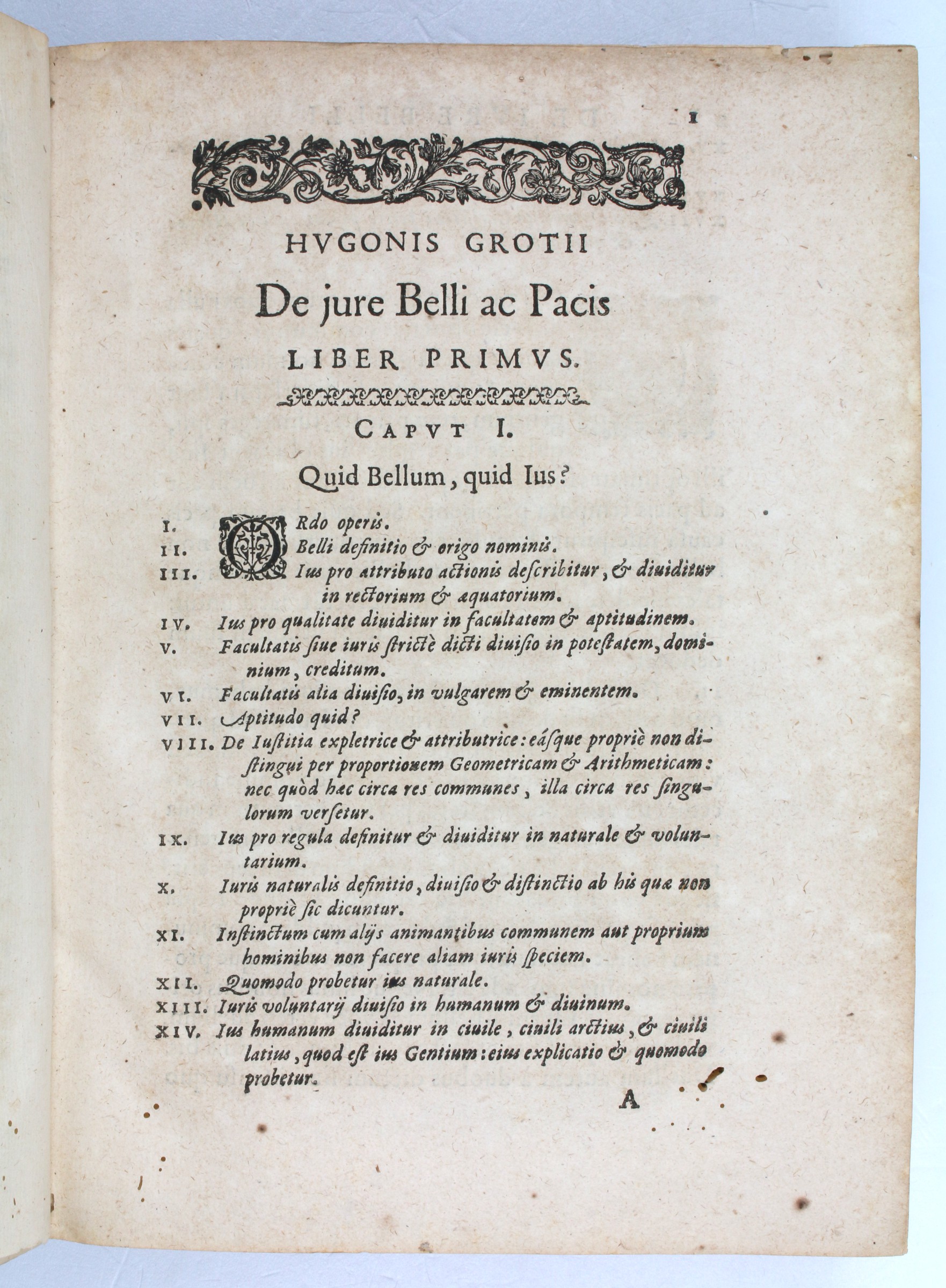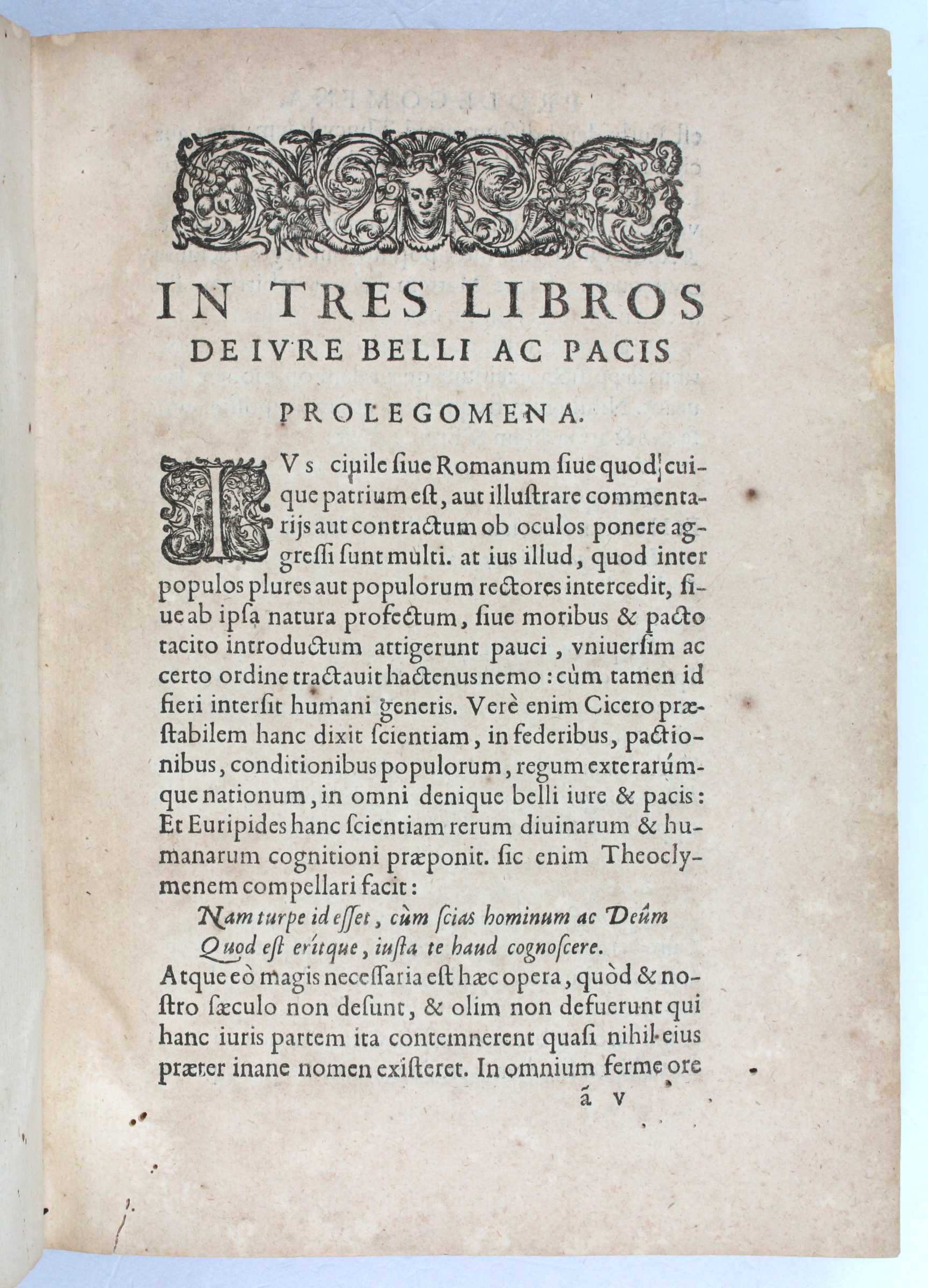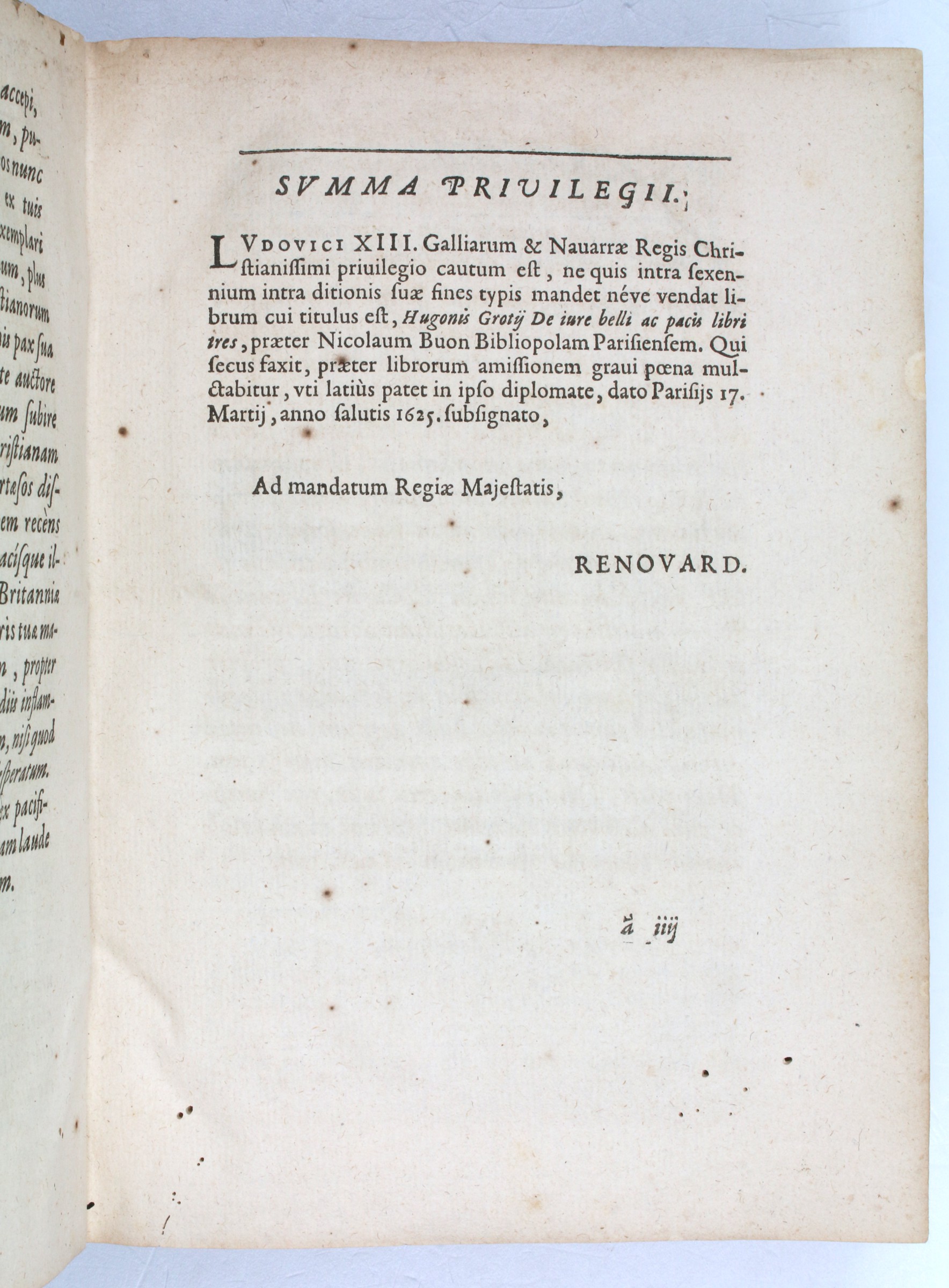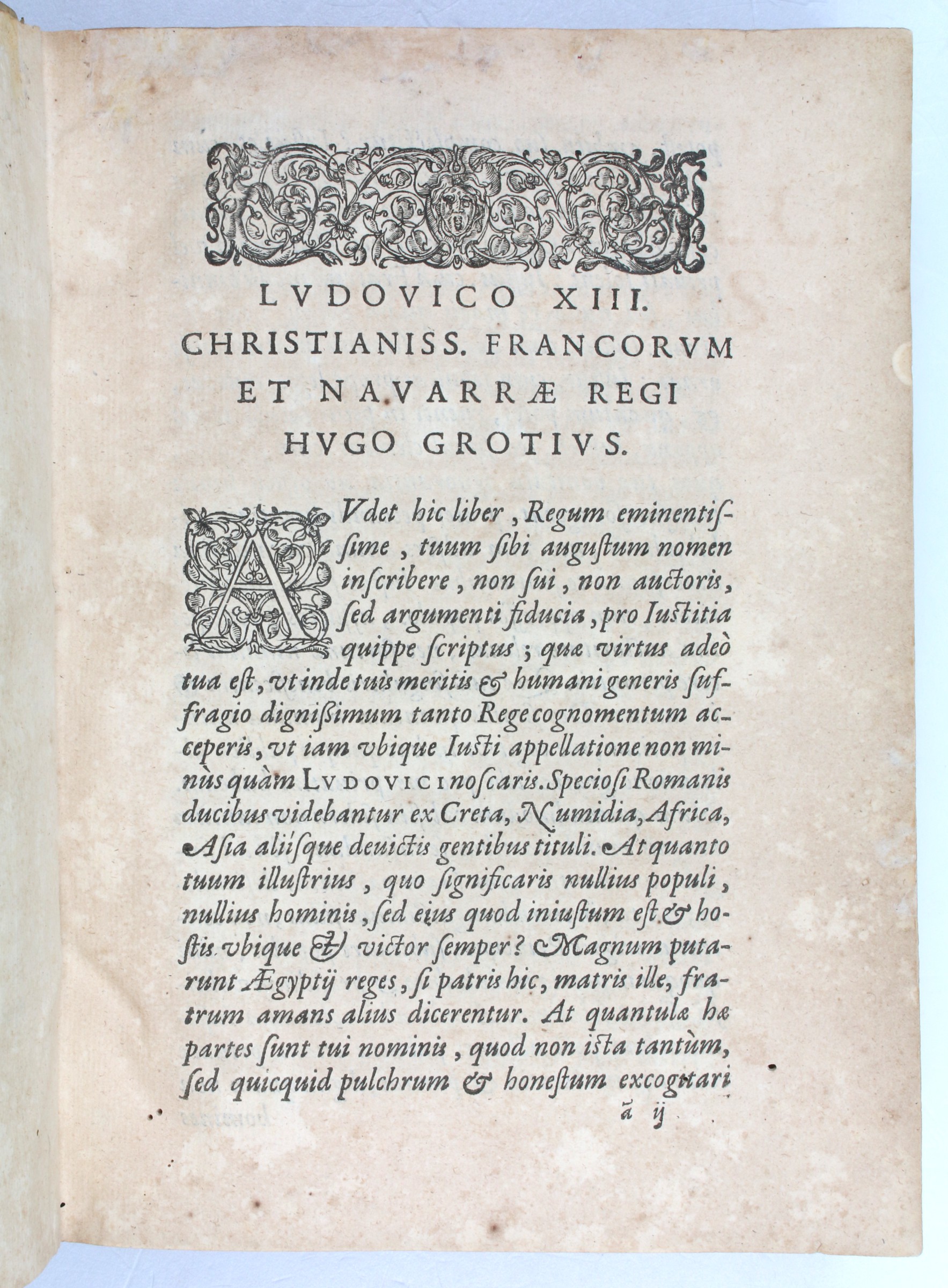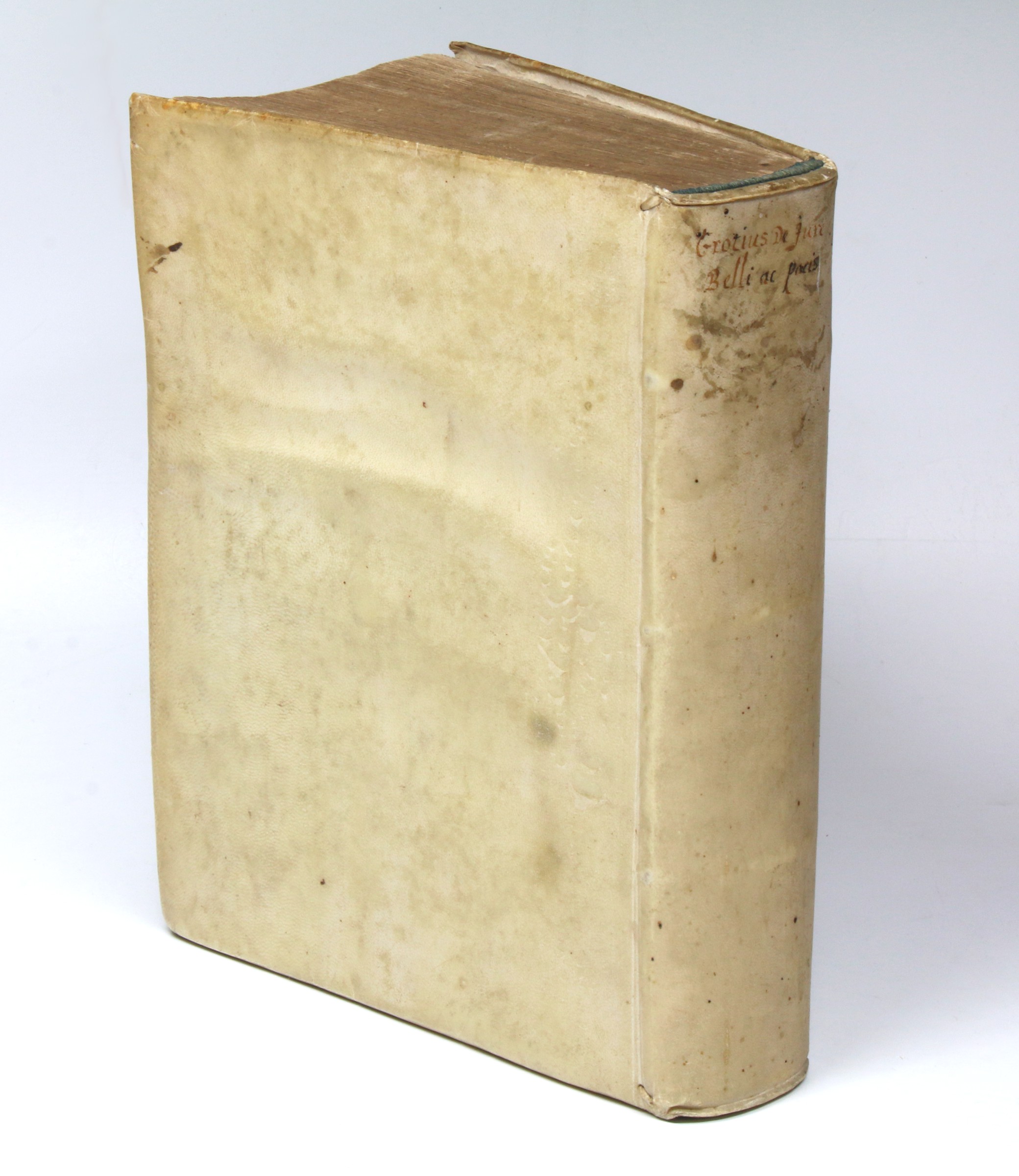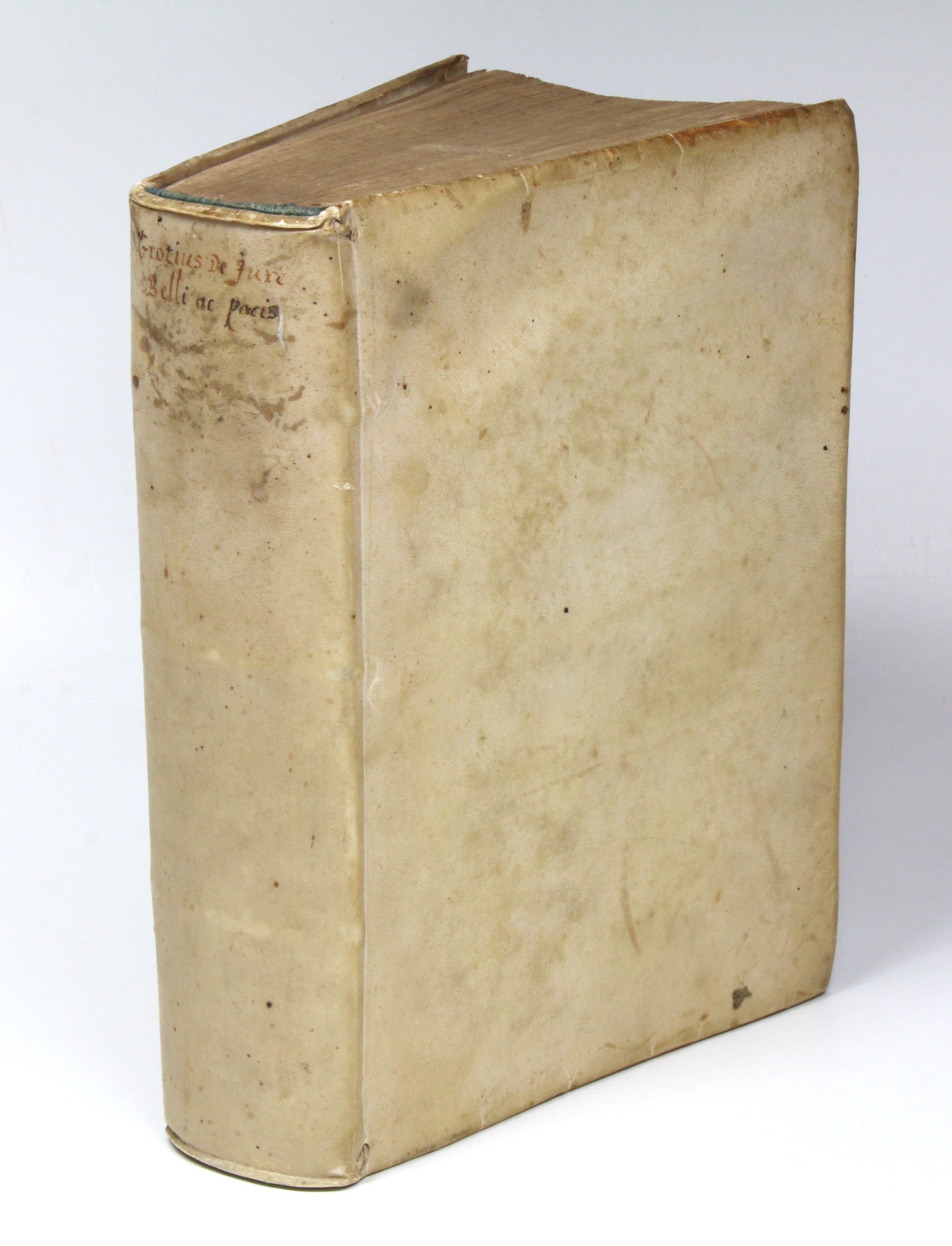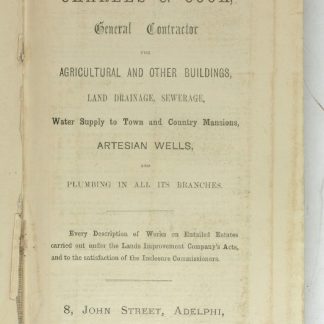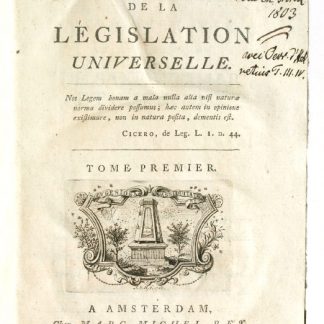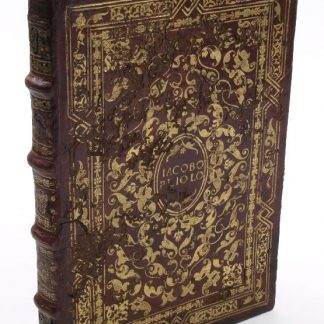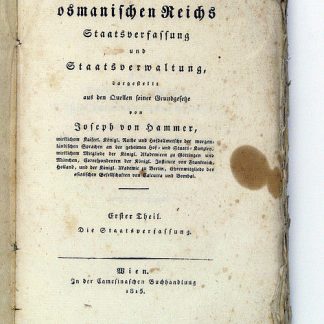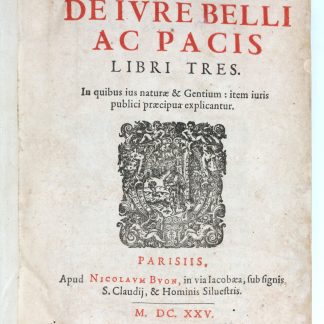The rare first edition of the foundation work of modern international law
De iure belli ac pacis libri tres. In quibus ius naturae & gentium: item iuris publici praecipua explicantur.
4to (185 x 245 mm). (34) pp., (1 blank f.), 506 pp., (1 blank f.), 553-786, (78) pp. (includes blank leaves o4 and 3S4, addenda leaves 5Q2-3, and errata leaf 5Q4). Title-page printed in red and black. Roman and italic type, a few words or phrases in Greek type, shoulder notes. Woodcut printer's device on title-page, woodcut head- and tailpieces and floriated initials. Contemporary full vellum.
€ 125.000,00
First edition of the book that forms "the foundation of modern international law" (PMM).
A prodigy in his youth, Grotius became a statesman and thinker of the greatest integrity whose influence on modern European thought can scarcely be overestimated. In 1619, cutting short a successful career in the law and diplomacy, Grotius was sentenced to life imprisonment in the Louvestein fortress in Holland by order of the stadtholder, Prince Maurice of Nassau, for having attempted to orchestrate a compromise between the Calvinist and anti-Spanish party, led by Maurice, and the more moderate Remonstrant party, who advocated self-government of the Dutch states in matters of religion. After a dramatic escape two years later (his wife smuggled him out of jail in a book trunk), Grotius took refuge in France, where he survived on meagre pensions, settling in 1623 in the country house of the President de Meme near Senlis, close to the property of de Thou fils, who gave him free access to his father's splendid library. There Grotius began writing his master work, "De jure belli ac pacis". Many of the ideas developed therein had been outlined in an unpublished work of his youth, "De jure praedae", the manuscript of which he had brought with him, enabling him to finish the treatise in under a year.
The fundamental importance of the mature work is its attempt, a century before the spread of the Enlightenment, "to obtain a principle of right, and a basis for society and government, outside the church or the Bible" (Enc. Britannica 1911, XII, 623). "The distinction between religion and morality is not clearly made, but Grotius' principle of an immutable law, which God can no more alter than a mathematical axiom, was the first expression of the 'droit naturel', the natural law which exercised the great political theorists of the eighteenth century, and is the foundation of modern international law" (PMM).
Buon commenced printing the work in November 1624. By using two or three presses, a few copies, presumably of the first state (Ter Meulen/D., p. 565), were ready to be sent to the Frankfurt fair in March 1625. This first state (of which Ter Meulen and Diermanse record only one copy, at the Bodleian) contains no table, indices, addenda or errata; all but the errata were added, constituting a second state (Ter Meulen/D. 565'), copies of which are also extremely rare, as it appears not to have been published. Both first and second states contain substantive textual variants, principally in bifolium 3Q2.3 and in quires 5E-5G, which were modified under the author's supervision, probably in the course of printing, forming a third and final state. While 3Q2.3 appear to have been entirely re-typeset, other corrections or revisions, according to Grotius's bibliographers, appear erratically in different copies. States II and III have the title-page in red and black, in both, book 3, chapter 24 begins on p. 781 and text ends on p. 786, and both are complete, except that state II lacks the errata. Our copy conforms to state III.
A little occasional spotting and browning to text, small wormholes to lower corner of the first few leaves. Some edge flaws to title-page professionally repaired. An outstanding, clean and completely unsophisticated copy.
PMM 125. Ter Meulen, Liste bibl. de 70 editions et traductions du De lure belli ac pacis, p. 9-10. Ter Meulen/Diermanse, Bibliographie des écrits imprimés de Hugo Grotius, La Haye, 1950. Books That Made Europe p. 86.

